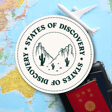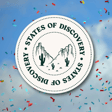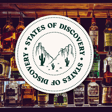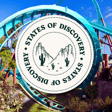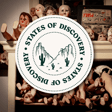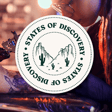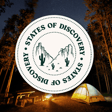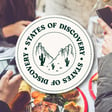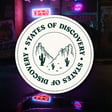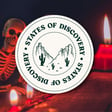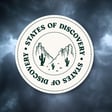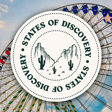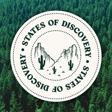
Chasing Storms: Understanding Natural Hazards and Disasters Across the U.S.
In this episode of States of Discovery, our hosts delve deep into the powerful forces of nature that shape the world we live in. Sara and Marisa explore the critical difference between natural hazards and natural disasters, discussing their causes, effects, and how we can stay prepared. From earthquakes to hurricanes, and from wildfires to floods, these events impact lives, ecosystems, and communities. Joining us are two special guests with firsthand experience in dealing with nature’s fury: a seasoned storm chaser who shares thrilling stories from the front lines of extreme weather, and a professional lifeguard and firefighter who provides essential safety tips on navigating rip currents.
What to Expect in This Episode:
- Natural Hazards vs. Natural Disasters: What distinguishes a natural hazard from a natural disaster, and why understanding the difference is key to preparedness.
- The Science Behind Natural Hazards: A breakdown of how natural hazards like tornadoes, earthquakes, and floods form, and the latest technology used to predict and respond to them.
- Lifeguard’s Rip Current Safety Tips: As hurricanes and tropical storms can intensify ocean conditions, our lifeguard guest provides practical advice on how to stay safe in the water, with critical tips on avoiding and surviving rip currents.
- Impact of Natural Disasters on Communities: We discuss the devastating effects natural disasters can have on local economies, infrastructure, and individual lives.
- Storm Chaser’s Perspective: Our storm chaser guest offers an inside look at the life of chasing tornadoes, hurricanes, and more, discussing the importance of weather prediction, safety measures, and the adrenaline that comes with this high-risk occupation.
Additional Resources:
- National Weather Service: www.weather.gov for storm alerts and safety guidelines.
- FEMA: www.fema.gov for disaster preparedness tips.
- Rip Current Safety: www.ripcurrents.noaa.gov for information on rip currents and water safety.
- Come Along On The Tornado Chasing Adventure Of A Lifetime Near Morton, Texas
- What You Should Know About Hurricane Preparedness, From Our Local Experts
Don't forget to subscribe, rate, and review States of Discovery on your favorite podcast platform. We love hearing from our listeners, so share your own fair memories and suggestions for future episodes with us!
Connect With Us:
- Phone Number: 805-298-1420 - Leave us a message! We’d love to hear from you.
- Email: podcast@onlyinyourstate.com
Tune in for a thrilling and informative episode that not only highlights the raw power of nature but also equips you with the knowledge to stay safe when nature turns dangerous!
![Welcome to Orlando: The Magic Beyond the Theme Parks [ 3 Part Series] image](https://media.zencastr.com/cdn-cgi/image/width=112,quality=85/image-files/62f4203e12b42701701687ad/e818c2bf-fab6-4f0c-802e-04fdc21f598a.png)
